There’s a secret that most employees know that many managers and owners forget (or dismiss). But it’s true more often than not, and powerful to think about:
People don’t leave jobs. They leave bosses.
Believe it or not, the relationship you build with your employees can have a greater effect on overall job satisfaction than compensation, opportunity, and daily tasks combined. A great rapport with a boss can keep an employee coming in to work for years, even during rough times when they might otherwise abandon ship. Likewise, a disconnected or adversarial relationship with a supervisor could drive the most successful employees out the door, regardless of any other benefits you provide.
Why is the manager-employee relationship so critical to overall job satisfaction? For one, staff who are motivated and engaged by their jobs are more likely to convert customers — i.e. generate sales — than those who aren’t.
Employees that are treated well and who maintain friendly relationships with their managers and peers are more likely to carry that behavior over into their other interactions at the workplace. This can be especially crucial for those who work primarily with the public, like restaurant servers and hosts.
But there’s a more intimate reason for developing a strong professional relationship with your team members: it simply makes your workplace a nicer place to be. And not just for the employees – many managers find their own job satisfaction increases as they invest in developing rapport with their employees.
So, how do you do it? We have five great ways for you to get started:
Get to know each employee.
While it is always important to set professional boundaries between you and your staff, getting to know a little more about each member of your team, on a 1-on-1 basis, can help drive better communication overall.
Does your employee have a significant other? Children? Pets? Do they have a hobby or play sports? Do they have a “side hustle,” something they do for fun or an entrepreneurial pursuit?
These are not superfluous questions. Knowing about your employee’s personal lives (to the extent they feel comfortable sharing) can help you ensure a positive work-life balance for your staff — something more employees than ever value and balance in their career decisions. You may even uncover skills or interests that can be repurposed to bring value to your business. For instance, your employee who runs their own website on the side might be the SEO expert you’ve been dreaming of!
Have an open door.
This isn’t just meant to be taken literally (although letting your employees actually see you on a regular basis certainly can have a positive effect on their perception of you). Let your team know that you are always open to hearing their thoughts, criticisms, problems, and ideas.
Too often, issues employees have in the workplace grow bigger and more difficult to manage because their frustrations are left to fester unnoticed. Encourage staff to always come to you right away with concerns and then follow through on addressing them in the appropriate manner.
Make an effort to be open and approachable (and to approach your staff), even when it’s not about a workplace dilemma. Stress from the outside doesn’t just evaporate at the doors of your restaurant. Even just expressing concern if you’ve noticed someone is quieter than normal or is having a particularly challenging week can do wonders for their morale — and their subsequent performance.

Share what you know.
Part of building a rapport with your employees is investing in them and letting them know their future is important to you. That could mean developing formal growth opportunities for staff to shadow managers, get mentored, and learn new skills on the job. Have a dishwasher or bus person who expresses a flair for cooking? Even if it’s only to improve their kitchen skills for their next dinner party, sharing tips on knife skills, proper seasoning, or the latest menu trends could engender a lot of trust and good will from your employee.
Investing in employees can also mean sharing some of the knowledge you’ve accumulated as a manager or entrepreneur over the years with those on earlier side of their careers. Have employees expressed interest in what they can do to help the business run better?
Consider going open book with your finances to not only share data, but share your thought process behind your business decisions and the experiences that back that up. Your staff will appreciate the transparency and you will be building a dialogue that may pay out dividends for your business.
Give feedback — positive and negative.
Most restaurants will have formal annual processes for reviews that employees and managers participate in, but feedback on performance shouldn’t just be reserved for annual reviews. Ongoing feedback shared between a manager and their staff maintains that rapport and makes difficult conversations not as hard to start amid the pleasant ones.
One thing to remember: providing feedback is not always about telling an employee what they can do better or identifying problems. Yes, discussion of job performance should always be constructive, but it’s important to reinforce positive behavior and skill development as well.
Some managers use what’s called the “compliment sandwich” to soften the blow of critical feedback, and help it get heard in the spirit with which it is shared. Opening discussion with something a staff member is doing really well, sharing thoughts on the area of trouble in a constructive manner, and then closing with something positive can help keep an employee’s trust in you, as well as not leave your ongoing relationship hanging on a sour note.
Of course, there are always going to be issues so severe that this method will not be possible. Those tend to rise to the level of disciplinary action, with already proscribed methods of how to handle complex and serious issues.
Say hello, good bye, and thank you.
Lastly, this may seem like a little thing, but actually greeting each one of your employees as they arrive (or as soon as you see them) and saying good night when they leave has a huge impact on your rapport. It’s so simple to do, but so easily forgotten as one busy shift blends into another.
But truly, it is a big thing that differentiates your workplace, and makes it feel less like a faceless factory, and more like a welcoming environment. Given some of us spend more time at our jobs than we do in our homes, that’s an important difference. You never want your employees to feel you’ve forgotten they’re even there, or that you take for granted their role in your business.
Taking time at the end of a long day or week to express a simple thanks for a job well done may seem awkward at first. Your employee may feel like they were just doing their job and that a special thanks is unnecessary.
But in the long run, the more your staff knows that you appreciate their hard work for your business and the brain power they put into the million decisions they have to make in a day, the happier they’ll be with the work they’re doing. And that means less turnover, more efficiency, and higher employee morale to keep your bottom line growing.
Want more advice on how to hire, train, retain, and discipline your employees for success? Download our free eBook for all the tips and recommendations for your restaurant managers:






